| Weight | 1200 g |
|---|---|
| Belly | 4.6 cm. |
| Blade Size and Type | 14 inch(30cm) and Black blade,Handmade. |
| Handle Circumference | 5.1 Inch. |
| Handle Size and Type | 5.5 inch (13.75cm) and Full Tang blade handle |
| Hardness of steel | spine=22-25 RC, belly=45-46 RC, edge=54-55 RC. |
| Lower Spine | 4mm. |
| Upper Spine | 10mm. |
| Overall length | 20.5 inches . |
| Place of Origin | Hand Forge at EGKH Factory in Dharan (Eastern part of Nepal). |
| Material Used | highly-graded-carbon-steel-car-jeep-leaf-spring5160for-blade-coton-cloth-for-scabbard-outsiderosewood-for-scabbardinsidebuffalo-horn-for-the-handlewhite-metal-and-laha-n |
| Complementary | Certificate of Guarantee, Tag, Wrapping Lokta Paper. |
Ana Pana Full Tang Blade
This is one of the special product of the EGKH.This is 12 inch Aana Pana(Ang Pana)Kukri.Panawala and Ang +khola are two different words that take two different meaning. Panawala is a popular village from eastern part of Nepal. This vary designed is come from the same village. First different of the khukuri made of this village is its handle. The handle of the khukuri from this village is always single piece that goes all the way through bottom of the blade.
$174.00
This is one of the special product of the EGKH.This is 14 inch Aana Pana(Ang Pana)Kukri.Panawala and Ang + khola are two different words that take two different meaning. Panawala is a popular village from eastern part of Nepal. This vary designed is come from the same village. First different of the khukuri made of this village is its handle. The handle of the khukuri from this village is always single piece that goes all the way through bottom of the blade. Ang means the back part of the human body and Khola means Kholeko (open). It means the blade part of this special design looks the same when a human back body is without cloth or it can say in simple language, up and down that is called Pata Pareko in Nepali language. This vary design is famous for the heavy duty working knife to cut harder things like wood, fire-wood etc. The main reason to be single piece from the handle side is to grip the metal piece too while using. The steps on the blade so that while work with the knife it doesn’t strike and can easily re-charge the knife and complete the work easily and comfortably.All Khukuris have two pockets on the back of the scabbard which hold a blunt steel called “chakmak” for sharpening the blade or for striking spark from flint and a little knife known as “karda” used for skinning small animals . The notch (kaura or kaudi) in the blade near the hilt of most khukuris serves as conduit for the blood on the blade to drip out, thus preventing it from soiling the hilt, as well as a device for catching and neutralizing and enemy blade.
Only logged in customers who have purchased this product may leave a review.

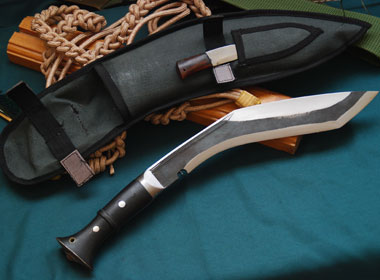
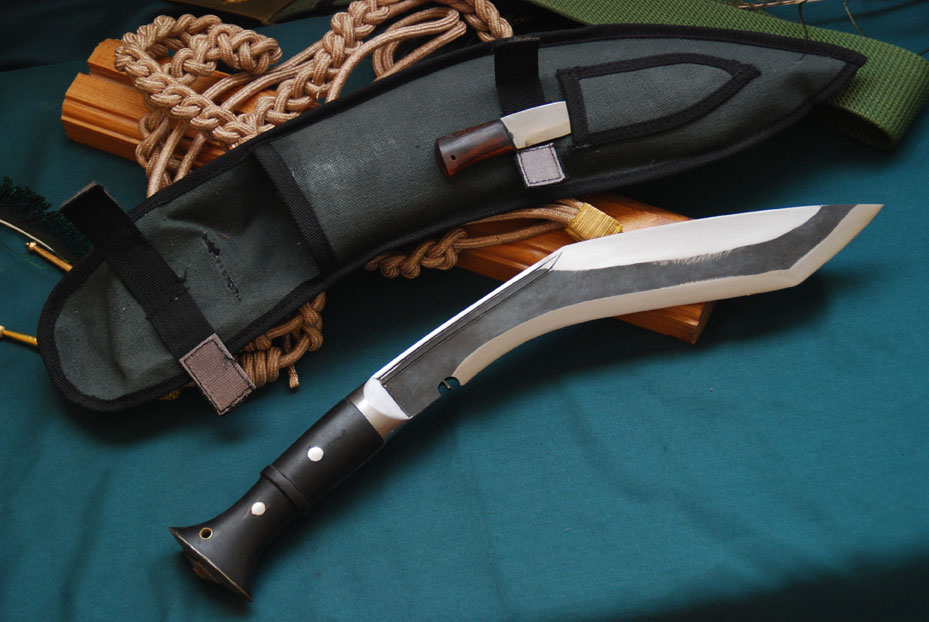
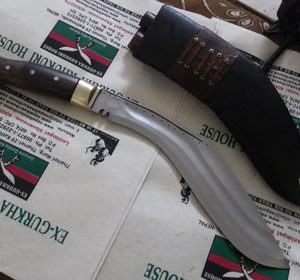
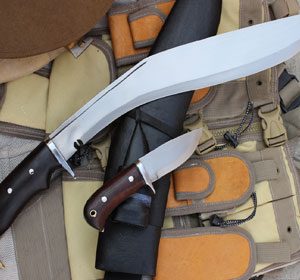
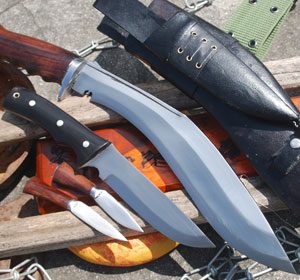
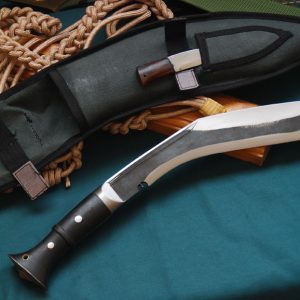
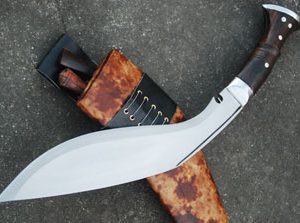
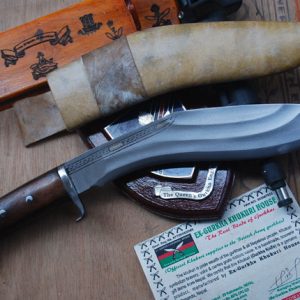
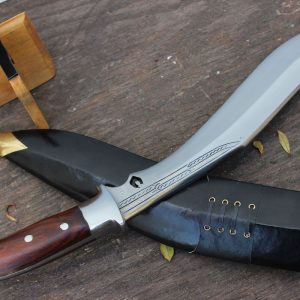
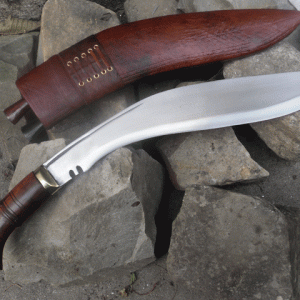
Reviews
There are no reviews yet.